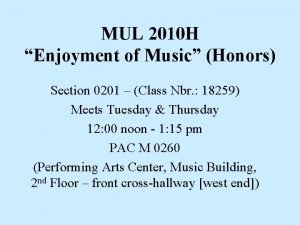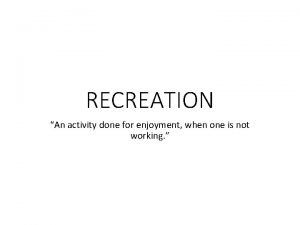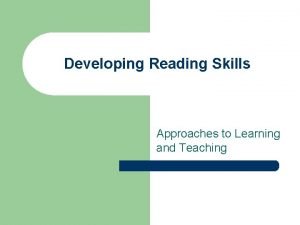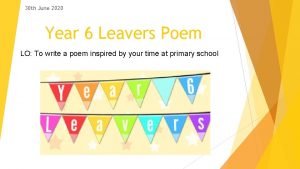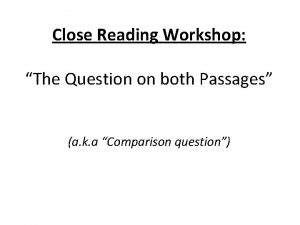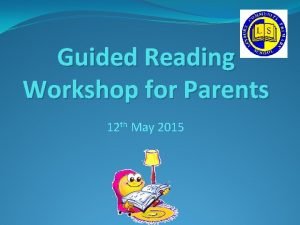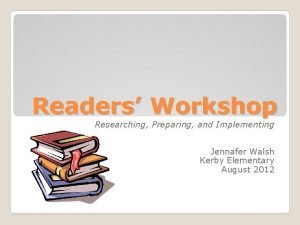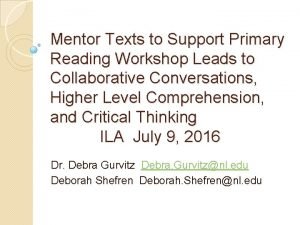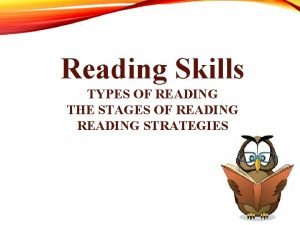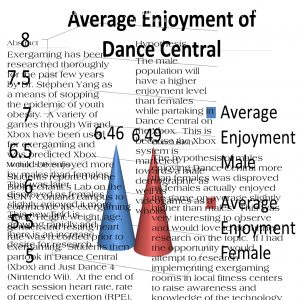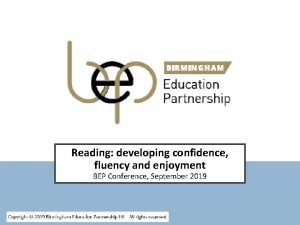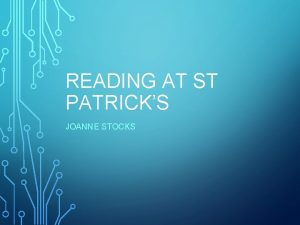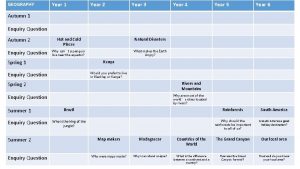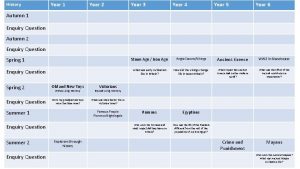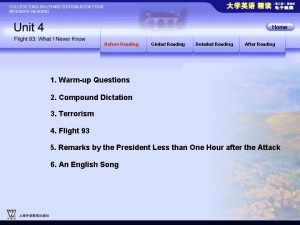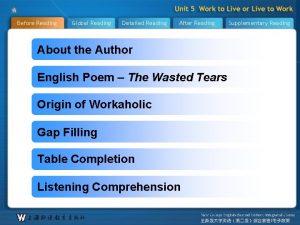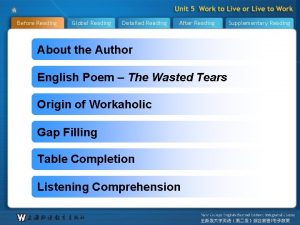YEAR 3 4 READING WORKSHOP ENJOYMENT OF READING











- Slides: 11

YEAR 3 & 4 READING WORKSHOP

ENJOYMENT OF READING The main thing about reading is that it is enjoyed. It can be enjoyed in a range of ways : • Being read to • Listening to audio books • Finding a series of books that you love! • Making reading time special

INTERESTING FACTS • Interestingly, children who are read only one book a day will hear about 290, 000 more words by age 5 than those who don't regularly read books with a parent or caregiver. • Young children whose parents read them five short stories/rhymes a day enter reception having heard about 1. 4 million more words than children who have less regular exposure to stories. • Research has shown that children who read for a minimum of 5 minutes a day can make excellent progress although this may not happen immediately. Regular and consistent reading is the key to unlocking the entire curriculum.

HOW CAN WE ALL HELP. q. Get them to choose a story/ book they want to read q. Make sure everyone is comfy q. Depending on their level, either get them to share a page, read a whole page or read a few sentences, then change over

HIGHER LEVEL LANGUAGE Children LOVE being read to and so this is an ideal time to pick a story or book they might think is too big/ tricky to read. This is the perfect opportunity to spend time developing a love of reading with them. Over the years, we have read some excellent books to children. Children often say they wouldn’t pick it up because it looks too big or too tricky but they have loved every second.

COMPREHENSION • Being a good reader is not just about being able to read the text fluently. As experienced teachers, we have learnt that fluency and comprehension are not synonymous. • So please do not assume because your child is reading fluently they understand what they have read. Conversely, just because they cannot read fluently does not mean they do not understand. Again, this highlights the importance of reading TO them! • If children have a good understanding they will automatically ask what an unknown word means.

COMPREHENSION CONT. • As we promote reading for enjoyment endless questions can be off putting. However, you can always prompt them by pretending that you haven’t understood yourself. • Summarising prior to reading is always an effective way of gauging their understanding.

PREDICTION • Another great way to reference understanding is by asking what happens next. Stories give us lots of opportunities to predict outcome and link characters.

BOOK TALK At Halton school, the teachers are all passionate about reading. As a staff, we share books and have a book swap in the staffroom. We are often found in the corridors discussing our favourite books and parts of a story. Book swap! In every class, we like to offer the opportunity for the children to swap books with each other. We have a box in each classroom for your child to place a book and take another. We were doing this before lockdown and will continue to do so when it is safe.

HELPFUL HINTS FOR HOME Below are some questions you could ask that will help with the skills we learn at school. Retrieving information Who…? What…? When…? Which…? All questions that are important and answers can be found in the text Summarising Comprehension Inference (vocabulary and context) What is the main point? What has happened so far? Which is the most important part? Do any sections have the same theme? What does this word/ phrase mean? What other words could the author have used? How has the author made you feel? Prediction (Mostly fictional books) What do you think. . means? Why do you think that? Why do you think. . . ? How do you think…? Can you explain why? What do these words mean and why do you think that the author chose them? What will happen next? How do you know? Why do you think that? Think about characters motives and ideas. How will the story end?

REMEMBER Books are for enjoyment!
 Adj adv
Adj adv Mul 2010 ucf
Mul 2010 ucf The activity done for enjoyment when one is not working.
The activity done for enjoyment when one is not working. Enjoyment
Enjoyment The enjoyment of music 12th edition
The enjoyment of music 12th edition While reading activities
While reading activities Year 6 leaving poems
Year 6 leaving poems Dentify a key term used in both passages.
Dentify a key term used in both passages. Reading workshop for parents
Reading workshop for parents Pros and cons of reading workshop
Pros and cons of reading workshop Mentor texts for reading workshop
Mentor texts for reading workshop Reading skills types
Reading skills types

